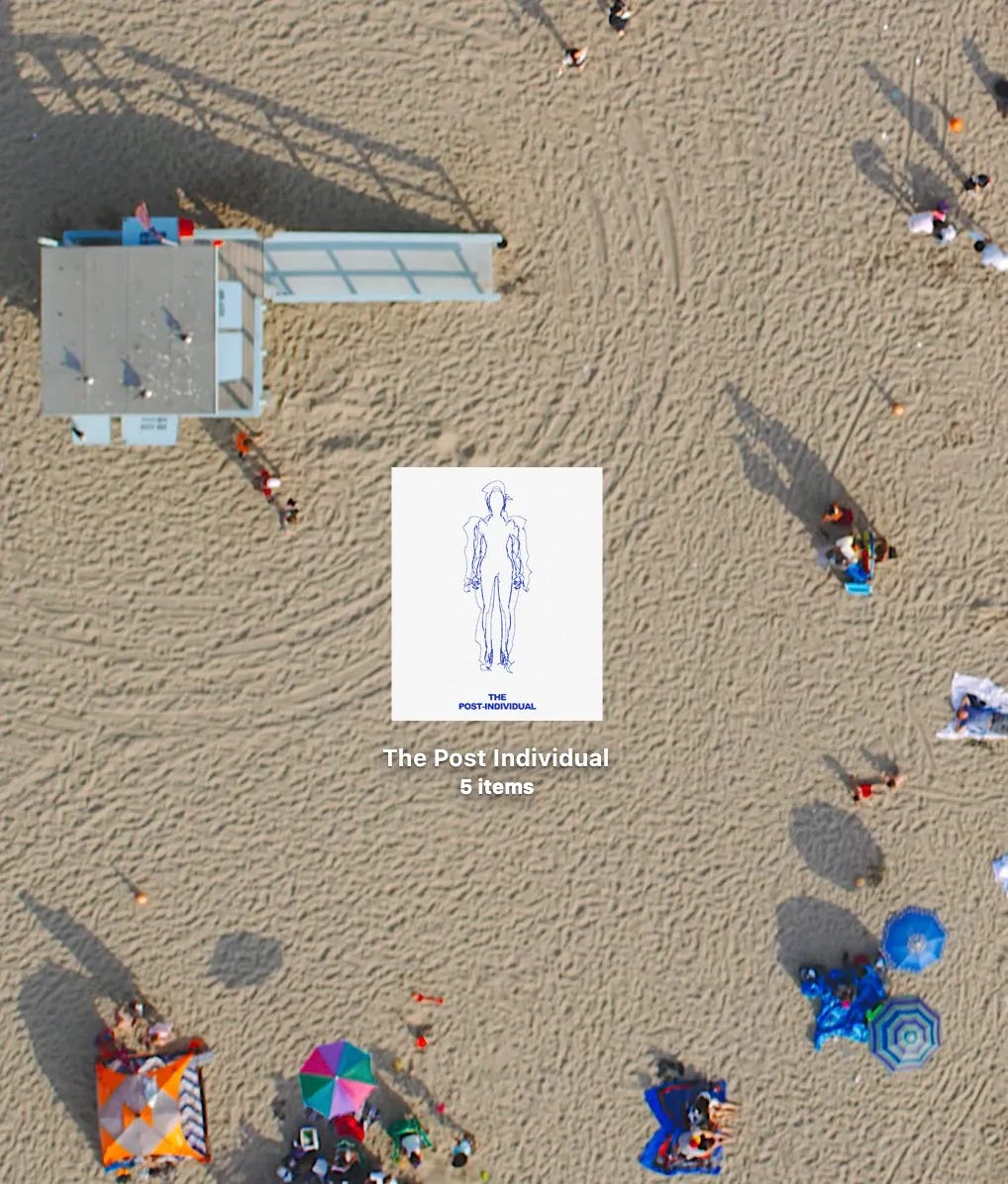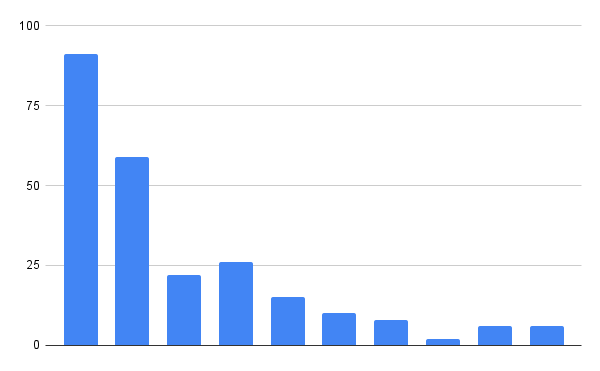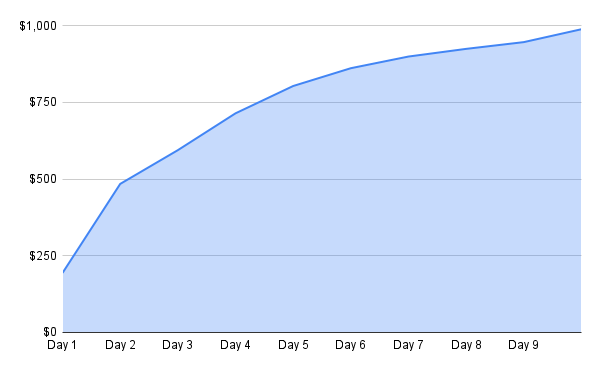What if you gave yourself the gift of inner acceptance?
There’s a specific modern anxiety that comes with putting creative work online. You put your heart and soul into something, send it out to an audience of potentially billions, and hear back… nothing like what you hoped.
I've felt it so many times I became someone who loves to write but hates to publish. It can feel safer and more fulfilling to stay in the safety of my own imagination than subject my ideas to the non-response of others.
These feelings were especially acute as I prepared to publish “The Post-Individual,” a piece I've worked on for several years. It tells the history of individualism and how it’s been changed by the internet. I started with thoughts of making it a book, but as Metalabel emerged as a practical application of similar themes, I decided to turn “The Post-Individual” into an essay instead.
The piece was finally ready to publish earlier this year. But how? It was more than a blog post to me. I wanted to express it as part of a larger body of work that builds on the idea of others.
Then, an idea: make a “Digital First Edition” — a ZIP folder containing a PDF of the piece; audio and video recordings of me reading and talking about it; and research notes. A multimedia collection that would capture the work and the work that made the work.

To give the “Digital First Edition” added meaning, I limited it to 250 editions for $5 a piece or pay what you want on Metalabel. As I pressed publish, I had no idea what to expect. Five dollars for an essay? I couldn’t remember seeing that before. Would anyone buy one? Would anyone read it? Would people be mad at me for even asking?
Digital first edition
We live in an aggressive media environment. Everything we see advertises for our attention. Information is constantly pushed onto us.
As the torrent increases, it devalues more and more information that comes our way. All social media is advertising. Even my posts are essentially ads for my work and point of view. Newsletters have become overwhelming. Nobody needs to read the next newsletter they get because somebody else’s will come ten minutes later. Things that aren’t disposable have started to feel like they are.
I didn't want my work to feel that way, even if it meant less people reading it. A “Digital First Edition” seemed like a way to make my work feel different. Digital, tactile, homemade. I took time to structure its contents, including a Notes screenshot to establish the provenance of when it was completed.
I gave the 250 limited editions a suggested $5 price, but people could pay what they want. Five dollars felt like both a lot and a little. I wasn’t sure what people would do.
The response
I sent a newsletter that introduced the experiment that Sunday. The first day there were 91 collectors. The second day there were 53. I didn't promote it very much. I wanted to see what would happen.
Day by day, the collector count grew. And then, on the tenth day, the 250th edition was collected. Half in the first 48 hours, half in the following week. I felt a sense of accomplishment.

Surprisingly it also added up to real money: $955 in support from collectors. More than I ever got paid for a piece of writing during my years as an arts journalist. All funds are going to the Dark Forest Collective — the label I published this piece through — to fund work by others exploring similar themes.

It could have been more. During the first 48 hours, a UI bug on Metalabel resulted in most collectors defaulting to collecting for free. Of the first 100 collectors, 66 were free and 34 were paid. After this was fixed, collectors paid an average of $5.25 — slightly above what I asked — or $1,300 across 250 editions.
My earlier question — would people pay $5 for an essay? — was a yes.
Collectors
The collectors defined the experience. Rather than the passive broadcast system I’d learned to fear — sending newsletters into the void — people weren’t tolerating the work, they were seeking it out. Every collector was someone explicitly asking to be part of something I’d made. It felt exciting.
After two weeks, I sent a personal email sharing how much their support had meant, and to offer to credit them on the piece if they shared their name. I added an optional box where they could give feedback on the piece if they wished.
Nearly 100 people responded with thoughts and reactions — the biggest response I’ve gotten to anything I’ve written. It felt like we were all part of a small club that was more private and non-performative than the internet at large. I’ve shared some of those reactions in this separate post, which are interesting on their own as people openly share how the internet impacts their sense of identity.
Private success > public success
In my past experiences publishing, I sought public success assuming it would lead to feelings of private acceptance and satisfaction. This unthinking assumption was misguided.
When we seek private satisfaction through public success, we give up our power to the outside world. We hope that all the energy we put into our work will be returned in the ways that we crave. It doesn’t often work out that way. When we judge ourselves on this desire for approval, we diminish our work and voice based on outcomes beyond our control.
This experiment showed we can invert that by being more honest with ourselves and our work. I didn’t simplify or dumb down “The Post-Individual.” I shared its full context and released it to a group that already resonated with my ideas. The acceptance I’d previously sought in the wider public was instead met on terms I set. Those 250 collectors satisfied my entire Maslow’s hierarchy of creative needs in a way that throngs of anonymous reader never have.
Many of us spend our lives pursuing private acceptance through external success. But no matter the award or honor, our inner doubts will remain. True acceptance comes from inside us. It takes asking ourselves challenging questions like: What do I want from my work? What’s most important about it to me? How would I create my work differently if I prioritized my private success? Then we must take the second step of acting in a way that honors those desires rather than our fears or the waters we swim in.
Even the first step of simply asking myself these questions opened up new paths for my work. They give me a clearer sense of what my true voice — stripped of a desire for public approval — sounds like. They make me want to publish more, not less, and to keep doing it on my terms. What if you gave yourself the gift of inner acceptance? What would it open up for you?






Member discussion